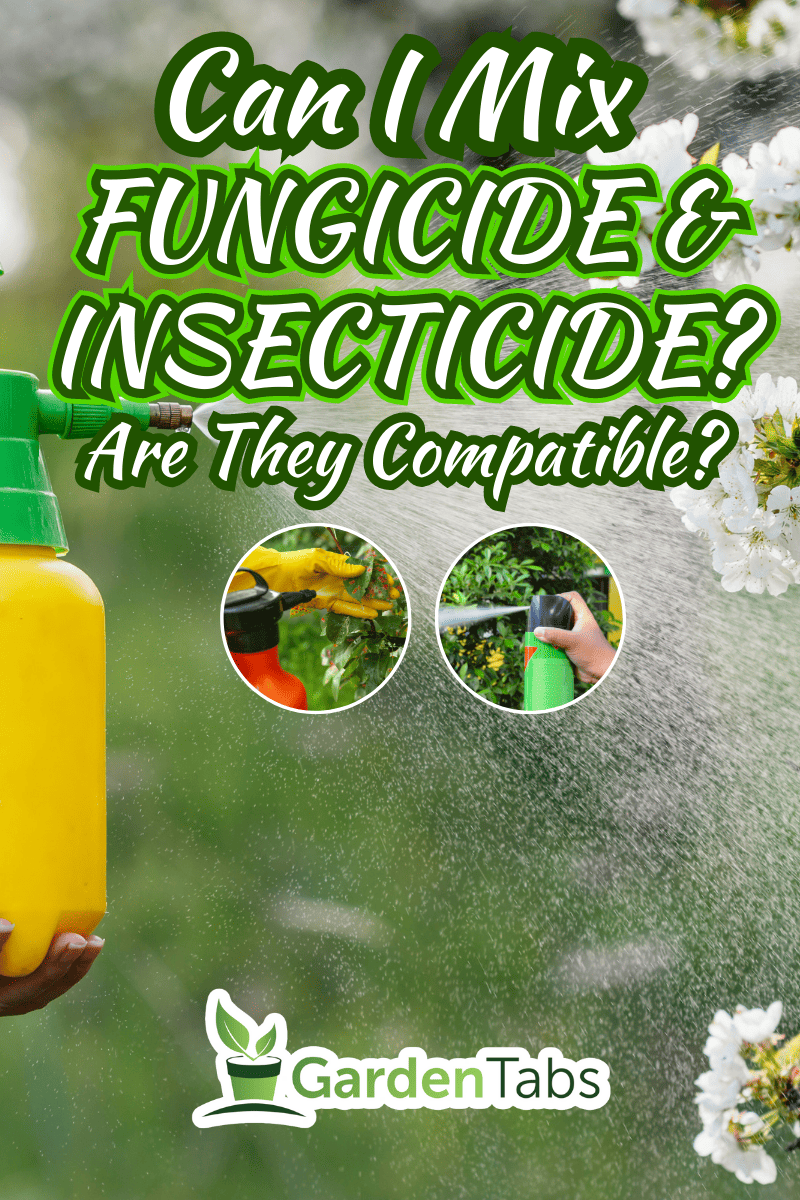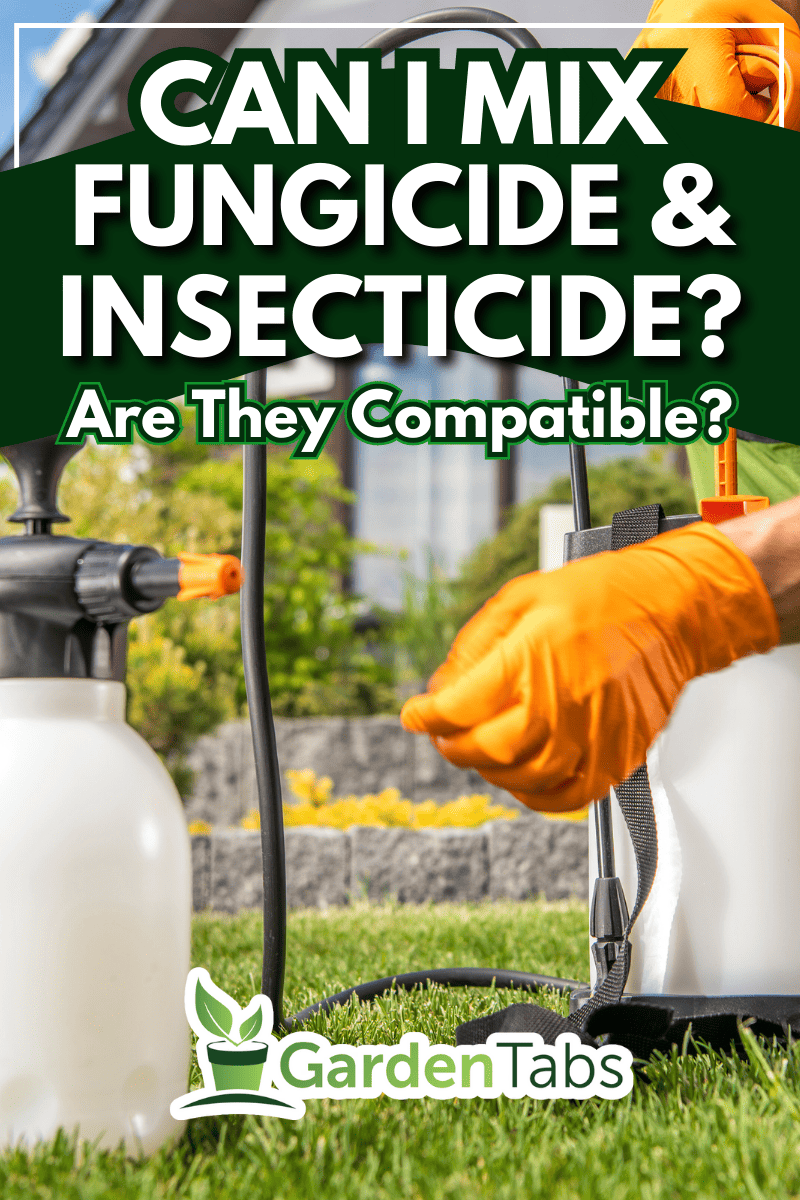Discovering an infestation or sick plant in your garden can be devastating. Do you want to try and fix these problems but don't want to spray a fungicide and insecticide separately? Is it possible to combine the two of these products for one single application?
Well, we've done some digging, and here are the answers we found:
For those wanting to mix a fungicide and insecticide, you can usually do this as long as the products share a similar consistency. For example, if you have a liquid insecticide and a fungicide and want to put them into the same bottle, that's okay.
However, we recommend reading each product's instructions and doing a mix test before spraying anything.
As we begin, we will cover all things fungicides and insecticides and show you how to mix the two. Whether your yard has become swamped with critters, disease, or you need to prevent them, we're here to offer some help. With that said, let's dive right into this topic below!
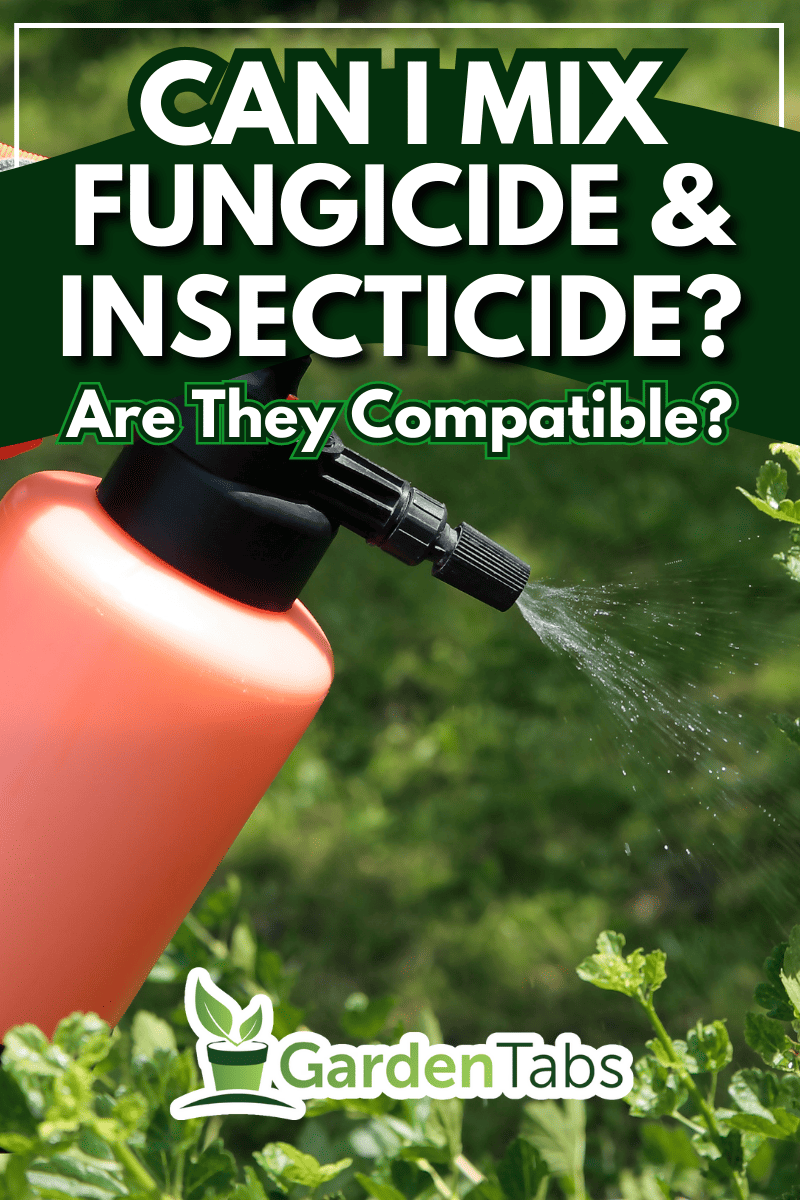
Is It Okay To Mix A Fungicide And Insecticide?
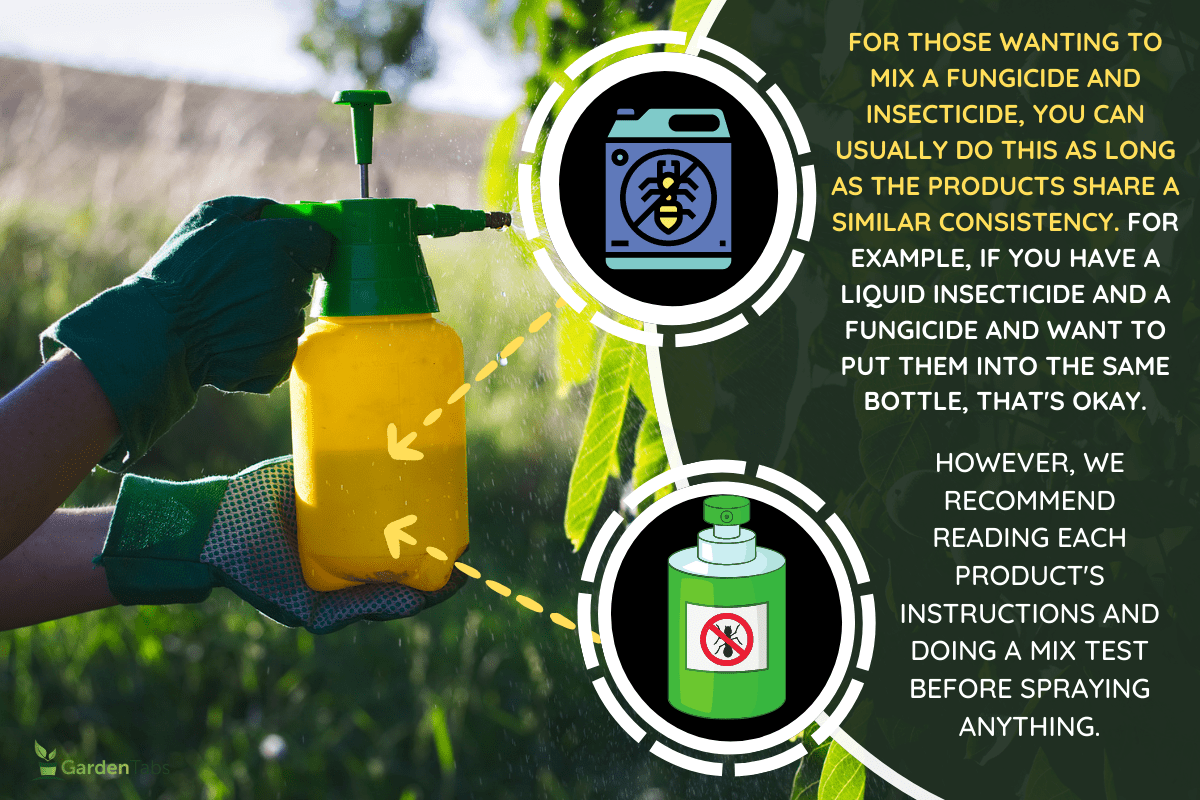
As long as both products you mix are a similar consistency and formula, you will be fine to mix them. Generally, fungicides and insecticides have a liquid formula, so combining them into one spray bottle shouldn't be too complicated.
That said, you want to read each product's instructions first. If your fungicide or insecticide has a specific application guideline and the other doesn't: you shouldn't combine them.
Ignoring the directions of your product can cause it not to work. Therefore, if you mix a fungicide with specific instructions with another insecticide, you may only see the insecticide work.
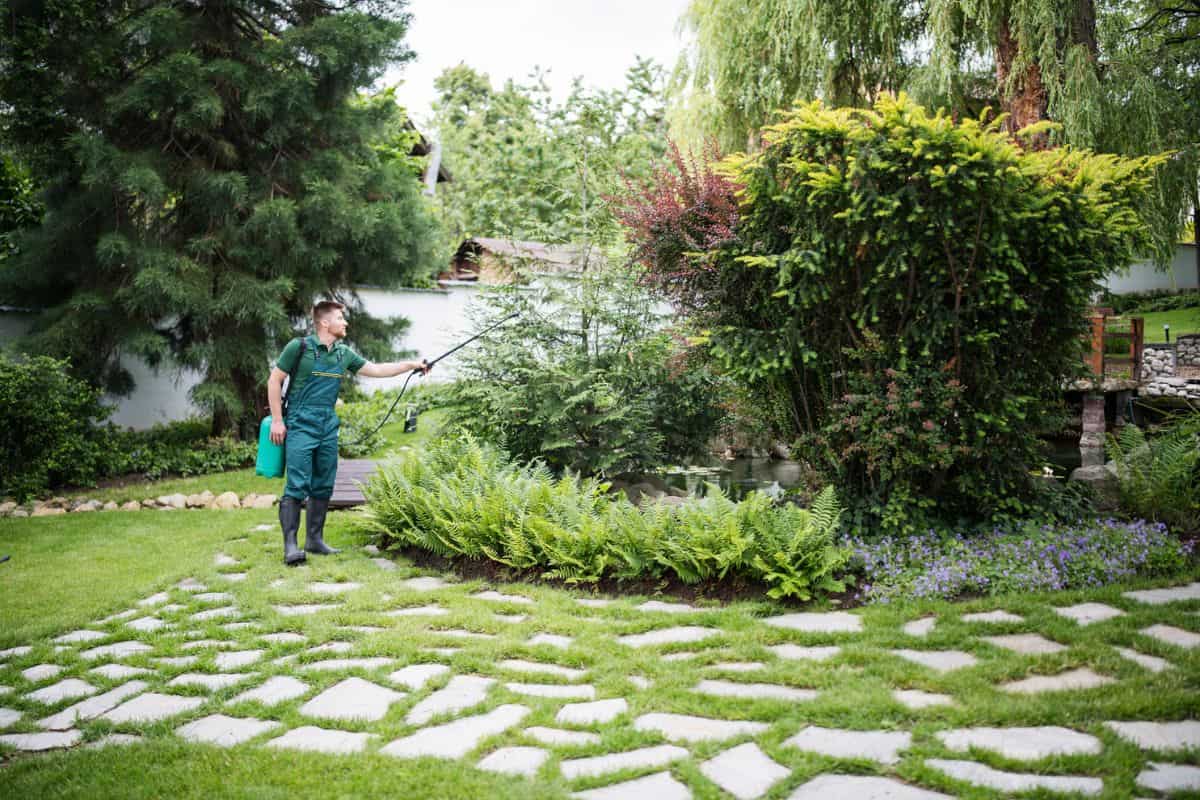
According to Micothon, many gardeners mix insecticides/pesticides with their fertilizer. The same goes for fungicides and fertilizers, as well as insecticides.
So, doing this isn't unheard of.
How Do You Mix A Fungicide With An Insecticide?
For anyone wanting to try this idea, you need to follow certain instructions. Generally, you need to start with gathering a spray bottle and your two products.
From there, you can mix equal parts fungicide with insecticide, even diluting the two a bit with water. Of course, your products will come with instructions for this, as some are already diluted.
The more water in the mix, the less effective/potent your spray is, so remember that while concocting it.
When you have the two formulas inside the spray bottle, seal it tightly. Next, shake the mixture to combine and spray easier on your plants.
As we mentioned, your products should interact nicely if they have a similar consistency, although some water dilution can also help with this.
What Are The Signs Of A Pest Problem In My Garden?
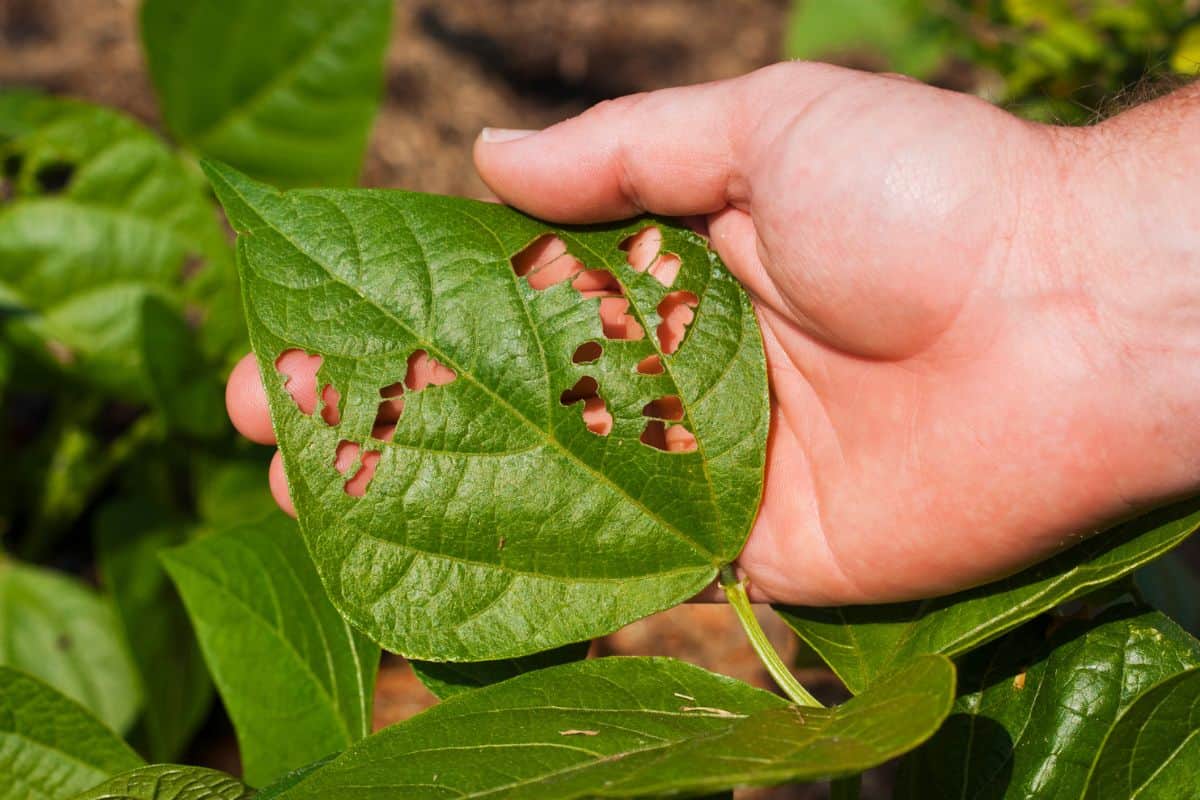
If you aren't 100% sure your garden has a pest problem, there are signs to look for. Typically, pests in a garden will feed on your lower-hanging foliage, like flowers, shrubs, and fruit.
According to HGTV, some common infestation signs include:
- Holes in plant leaves
- Grubs around the base of container plants
- Speckled/discolored foliage
- Partially or fully eaten leaves
Of course, these are just a few indicators that someone is feasting on your plants, so if you notice any of these red flags, we recommend buying an insecticide ASAP.
A common mistake is letting pests eat and hang out on or near their landscaping. Although nature should work as it should, you are your plant's best advocate.
Failing to come up with a game plan to tackle an infestation can lead to it getting worse. In severe cases, you could see entire sections or even entire plants die, so this is a big deal.
Moreover, you can usually find an all-purpose insecticide for a broader range of critters, so that's a good place to start.
Nature-Cide All Purpose Insecticide
This insecticide works for a broad range of pests, is 100% natural and non-toxic, comes with a pre-mixed solution, works against common bugs, and comes in a 32-ounce spray bottle.


Follow this link to view it on Amazon.
How Do I Know My Plants Have A Fungus?

Although it can be tricky to determine if a fungus is present in your yard, there are some signs to watch for. Generally, plant fungus infections result in soft rotting patches and greyish discoloration.
Many experts also recommend searching for dead brown patches on your plant's foliage and discoloration on the stems, flowers, branches, and bulbs.
Since many fungi thrive in soggy soil, overwatering plays a significant role here. For example, a plant in the shade with too much soil moisture is more likely to develop a fungal disease than one in the full sun.
Therefore, failing to let your plants absorb water before adding more can make them sick. On top of that, it's possible to notice white patches on the ground near your sick plant or along its foliage.
If your plant feels super wet and looks bloated, chances are, it's in the early stages of a fungal infection.
Do Fungicides Work?
Yes. Applying a fungicide to a sick plant will usually help it recover. However, waiting too long to treat a fungus can sometimes result in plant death, regardless.
So, time is of the essence here. According to MSU, most systemic fungicides are effective, although timelines for their effectiveness can vary.
Therefore, certain pathogens/fungi can die faster than others after spraying them with your product. You also want to make sure you apply the fungicide directly to the infected area, as this will help speed up the process.
Keeping a close eye on your plant's moisture intake is also crucial here, so the more attention, the better.
What Are The Most Common Garden Pests?
Although the pests in your garden can depend on where you live, there are certain species that we can't seem to avoid. These typically include:
- Aphids
- Whiteflies
- Spider mites
- Flea beetles
- Japanese beetles
- Thrips
- Caterpillars
- Leaf Miners
- Stinkbugs
- Grasshoppers
Again, you may see some of these, while others won't be common to your area, so everyone is different. However, many, if not all, of these critters can quickly overstay their welcome and wreak havoc on your plants.
It's common to notice more pests in your garden through spring and summer. That's because many of these species lay their eggs before winter, which means an excess of new hatchlings as the temperatures rise.
So, it could be worth it to spray an insecticide around your garden right before the spring season. You may also want to continue applying your spray throughout the spring, summer, and into fall if issues persist.
The key to stopping an infestation is consistency and patience. You'll need to keep up with your insecticide application for it to work, so don't fall behind schedule.
How Often Should I Use Insecticide?
Ideally, you want to spray an insecticide every 90 days. Although this can vary, you want to come up with a routine application, so your product can continue fighting off unwanted critters.
However, if you have an infestation, you might want to increase your sprays to twice every 60 days. Your insecticide will come with application instructions, which you need to follow closely.
It's also worth noting that too much insecticide isn't always a good thing.
Especially if you mix yours with a fungicide, you could burn your plants with all the chemicals. Again, some products don't contain harsh additives, so those won't likely harm your plants if you overuse them.
Regardless, we recommend being cautious of where you apply insecticide and continue treating the affected plants/sections of your landscape until the bugs start to die off.
Is It Better To Hire A Professional For Insecticide And Fungicide Spraying?
For those debating between a DIY spray and hiring a professional, this comes down to your budget and the severity of the infestation/disease.
In general, hiring a professional yields better results. Especially if your garden has a major pest problem or your plants are getting sick and dying in droves, you may not be able to handle that on your own.
Therefore, paying an industry professional can be a better investment long-term, although it comes at a higher price than the DIY route.
Many experts recommend choosing a certified pest company for infestations as they have better equipment and can create a game plan for your garden.
If you do this independently, you might miss out on certain spots where bugs are living and nesting, which can void the progress you make elsewhere.
How Long Do Insecticides And Fungicides Work?
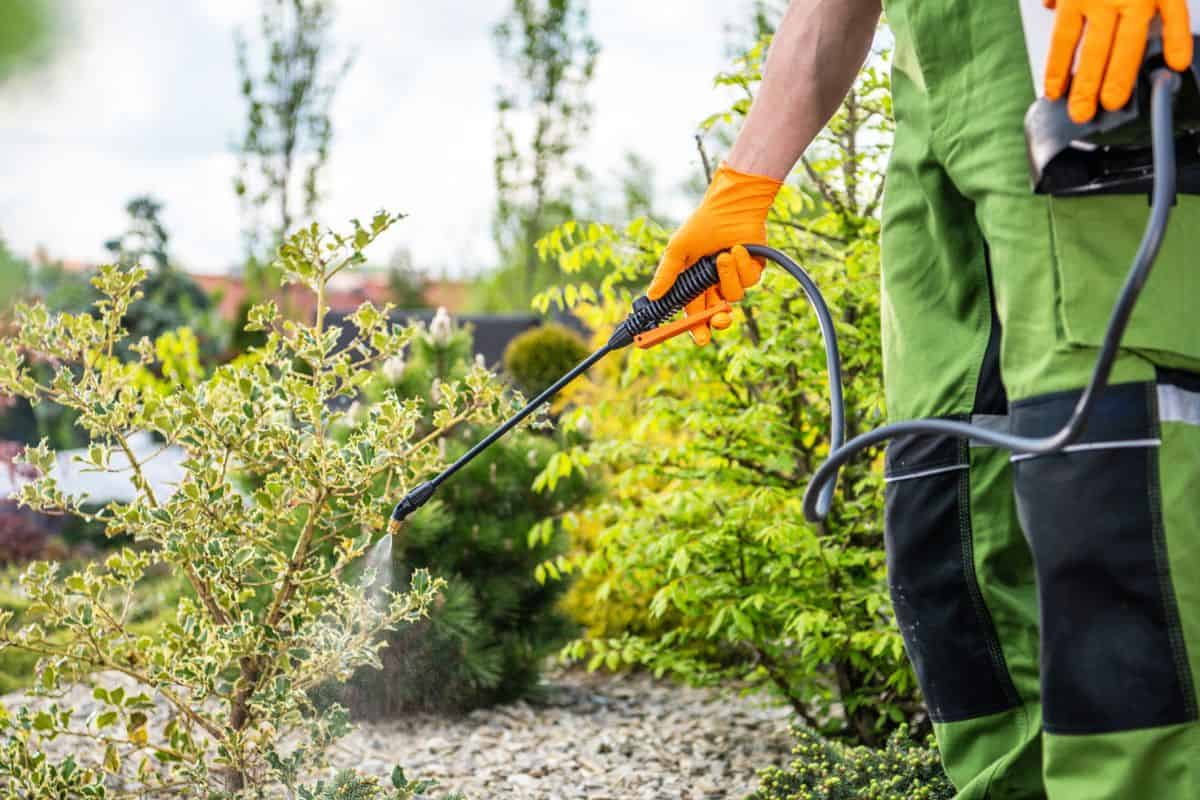
You can typically expect an insecticide to work for 90 days post-application. On the other hand, a fungicide will work for a shorter period: 7-14 days on average.
If you mix the two and apply them to your plants, you might not be fighting fungal diseases and pests. So, if you want to, try using a fungicide every week or so between those 90-day sprays to keep your plants healthy.
As we said before, consistency is the best thing for combatting disease and pests.
To Tie Everything Together
Whether you suspect an infestation or fungus in your garden, it's always good to create a game plan and use the right products. We found that you can successfully mix most fungicides and insecticides and use them as a spray for your plants.
Furthermore, you want to ensure the two products you combine have a similar consistency. If not, you could run into issues spraying your potent concoction, which won't be fun.
Regardless, create a spraying schedule, and don't be afraid to contact a licensed professional if you need extra help.
Made it to the end? Check out these helpful related garden articles below:
Do Insecticides Expire Or Have A Shelf Life?

